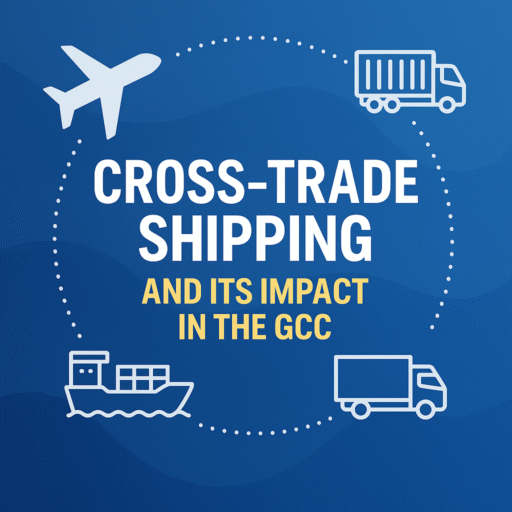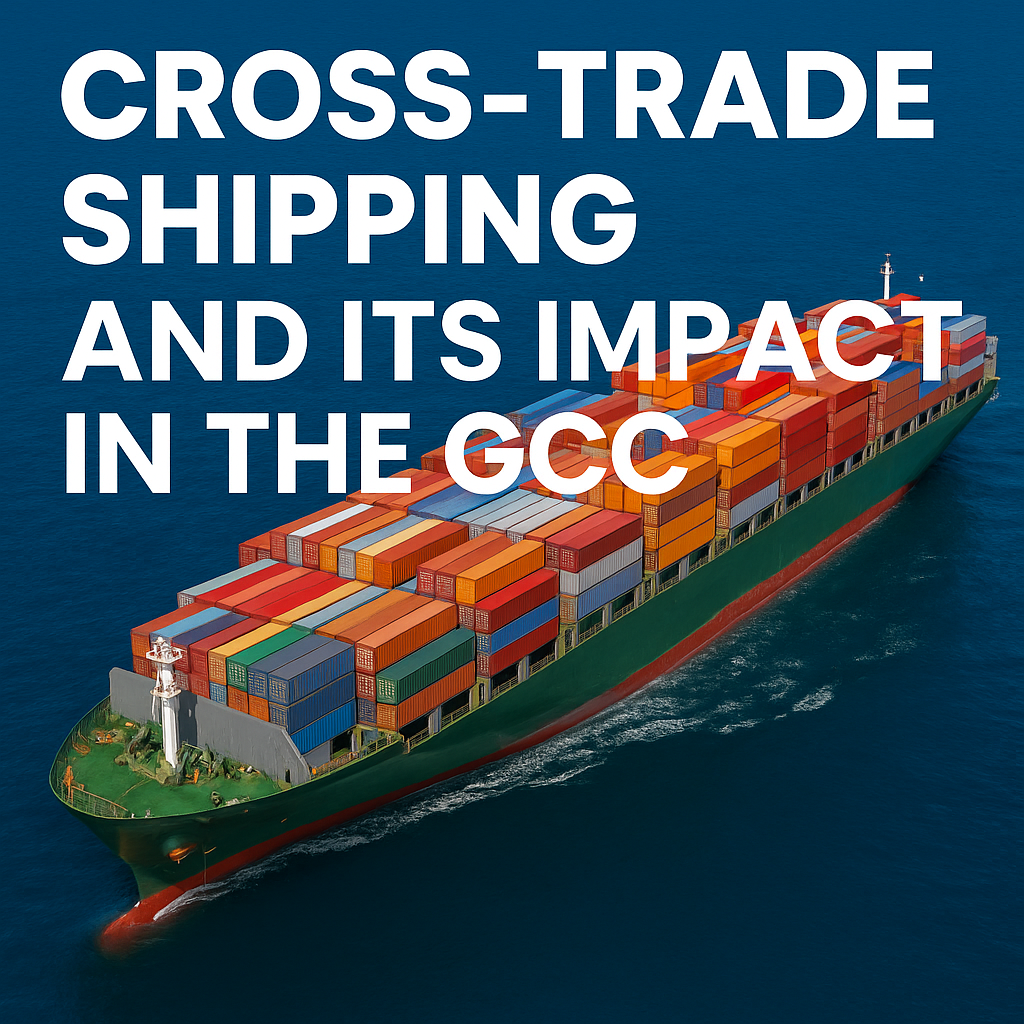Global trade is no longer about moving goods from Point A to Point B. Today, supply chains are borderless, dynamic, and multi-directional. One concept driving this transformation is cross-trade shipping — and in the GCC (Gulf Cooperation Council), it’s quickly becoming a growth engine for logistics, trade, and economic diversification.

✅ What is Cross-Trade Shipping?
Cross-trade shipping (also called triangular trade or foreign-to-foreign shipping) refers to moving goods between two countries without the cargo ever touching the seller’s country of origin.
Example:
-
A UAE company arranges for goods manufactured in China to be shipped directly to a customer in Africa.
-
The cargo never passes through the UAE, but the trade deal is managed, financed, and coordinated from Dubai.
This model has become especially popular with trading companies in Dubai, Jebel Ali Free Zone, and Saudi Arabia that act as global intermediaries.
📈 Why Cross-Trade Matters in the GCC
The GCC is strategically located between Asia, Africa, and Europe, making it a natural hub for cross-trade. Its ports, airports, and free zones allow companies to manage shipments seamlessly even when cargo doesn’t physically pass through the Gulf.
1. Trade Diversification
Cross-trade enables GCC companies to expand beyond regional markets and operate as global brokers, not just local distributors.
2. Lower Logistics Costs
By cutting out unnecessary transshipment via the seller’s home country, businesses save time, money, and carbon emissions.
3. Competitive Advantage
Dubai and Saudi Arabia are positioning themselves as global trade orchestrators, not just import/export centers. Companies using cross-trade shipping can offer faster and more flexible solutions to clients.
🚚 Key GCC Sectors Benefiting from Cross-Trade
-
Oil & Gas Equipment – Heavy machinery sourced from Europe delivered directly to Africa.
-
FMCG (Fast-Moving Consumer Goods) – Asian products routed straight to African and CIS markets.
-
Construction Materials – Steel, tiles, and cement sourced globally for mega projects in Africa and South Asia.
-
Textiles & Apparel – Managed from Dubai but sourced in China and sold in Europe or Africa.
⚖️ Challenges in Cross-Trade Shipping
While cross-trade offers great opportunities, it also comes with risks:
-
Documentation Complexity – Multiple bills of lading, commercial invoices, and customs clearances are involved.
-
Visibility Issues – Shipments may bypass the “home” office, making tracking more difficult without digital tools.
-
Compliance & Trust – Buyers and sellers often require neutral forwarders to protect sensitive supplier/client information.
-
Regulatory Barriers – Different rules across GCC, Asia, and Africa can complicate customs.
🌍 The Impact in the GCC
-
Economic Growth – Cross-trade reinforces the GCC’s role as a trading hub beyond oil.
-
Free Zones Expansion – JAFZA, Khalifa Industrial Zone (Abu Dhabi), and Dammam Port are thriving due to demand for cross-trade logistics.
-
SME Opportunities – Even small traders can run global operations from Dubai without heavy infrastructure investment.
-
Sustainability – Direct shipments reduce unnecessary carbon footprints, aligning with GCC ESG and green logistics goals.
🚀 The Way Forward
Cross-trade isn’t a side model anymore. It’s becoming the backbone of GCC logistics and freight forwarding.
To succeed, companies need:
✔ Experienced freight forwarders who can handle multi-country documentation.
✔ Digital tools for visibility and real-time tracking.
✔ Partners who understand HS codes, Incoterms, and customs requirements across multiple regions.
At Al Furqan Shipping & Logistics Dubai, we help businesses manage cross-trade operations with confidentiality, compliance, and cost-efficiency.
📌 Final Word
Cross-trade shipping is reshaping the GCC’s role in global logistics. By acting as orchestrators of global supply chains, Gulf-based companies can expand market reach, improve efficiency, and position themselves as true global players.
👉 If your business is exploring new markets, cross-trade may be the smartest path forward.
📞 Contact us at Al Furqan Shipping to discuss your next cross-trade shipment.
🌍 Visit: www.alfurqanshipping.com

